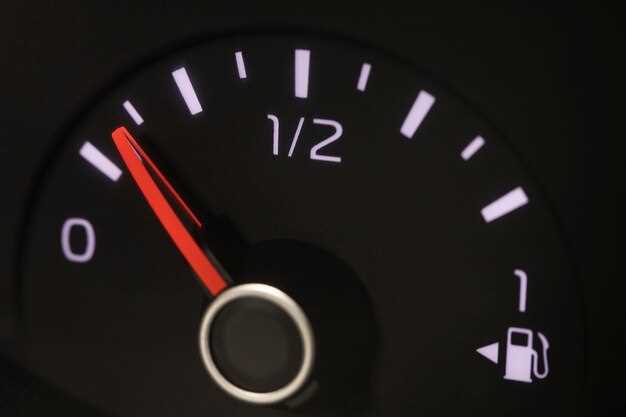
Why You Shouldn’t Ignore a Check Engine Light
- Arthur Rodriquez
- 0
- Posted on

The check engine light is not just a simple warning; it serves as a crucial indicator of your vehicle’s health. When this light illuminates on your dashboard, it’s a direct communication from the car’s onboard diagnostics system, signaling that something may be amiss. Ignoring it can lead to more severe problems that might compromise your vehicle’s performance and safety.
Understanding the diagnostics behind the check engine light can help you make informed decisions about your vehicle maintenance. This light can indicate a range of issues, from minor problems like a loose gas cap to more significant concerns such as engine malfunction. By addressing the warning promptly, you can prevent potential breakdowns and costly repairs later on.
Moreover, ignoring the check engine light can have implications beyond just the immediate functionality of your vehicle. It may also affect fuel efficiency and emissions, leading to environmental concerns and increased expenses at the pump. Therefore, paying attention to this warning light is not merely a suggestion; it’s an essential aspect of responsible vehicle ownership.
Understanding the Diagnostic Codes Behind Your Check Engine Light
The check engine light is a crucial indicator that something might be wrong with your vehicle’s engine or its related systems. When this light illuminates, it triggers the vehicle’s onboard diagnostics system to store a diagnostic trouble code (DTC). These codes serve as a gateway to understanding the underlying issues affecting engine performance.
Diagnostic codes are standardized across many automotive manufacturers. They typically consist of a letter followed by four numbers. The letter ‘P’ indicates a powertrain issue, which encompasses both the engine and transmission. The following numbers help pinpoint specific malfunctions, such as sensor failures, misfires, or emission control problems.
For example, a code like P0301 signals a misfire in cylinder one. Mechanics use these codes as starting points for deeper investigation. They can connect a diagnostic scanner to your vehicle’s OBD-II (On-Board Diagnostics) port, retrieve the codes, and begin interpreting them to uncover the specific issues affecting engine function.
Ignoring these diagnostic codes can lead to more severe problems down the line, including reduced fuel efficiency, increased emissions, and potential engine damage. Regularly monitoring and addressing the check engine light can save you time and money in the long run.
Understanding and properly responding to the diagnostic codes associated with your check engine light is essential for maintaining your vehicle’s health and longevity. It allows for timely repairs, ensuring optimal engine performance and safety on the road.
Common Issues Indicated by the Check Engine Light and Their Implications

The check engine light can signal a variety of issues with your vehicle’s engine, each carrying specific implications for performance and safety. Ignoring these warnings can lead to more severe problems and costly repairs.
One common issue is a faulty oxygen sensor. This sensor measures the amount of unburned oxygen in the exhaust and plays a critical role in fuel efficiency. If it malfunctions, it can lead to increased emissions and decreased gas mileage, creating a negative impact on both your budget and the environment.
Another frequent culprit is a loose or damaged gas cap. While this might seem minor, it can cause fuel vapors to escape, reducing fuel efficiency and triggering the check engine light. An improper seal can also result in costly repairs down the road due to potential fuel evaporation leaks.
A malfunctioning catalytic converter is another serious issue that may trigger your light. The catalytic converter transforms harmful gases into less harmful emissions. If it fails, it can significantly reduce engine performance and lead to increased pollution levels. Replacement can be expensive, making early detection crucial.
Moreover, issues with the spark plugs or ignition coils can affect engine ignition and performance, resulting in misfires. Persistent misfires can not only diminish the vehicle’s acceleration but also lead to more extensive damage in the long run.
Lastly, a failing mass airflow sensor can disrupt the air-fuel mixture necessary for optimal engine function. A malfunction here can result in poor engine performance, stalling, and increased emissions. Addressing this issue promptly ensures better driving conditions and longevity for your engine.
In summary, the check engine light is an early warning system for various engine-related problems. Timely diagnosis and repair of these issues can save you from more significant repairs and enhance your vehicle’s reliability.
When to Seek Professional Help for Your Check Engine Light

The check engine light is a critical indicator of potential issues within your vehicle’s engine and associated systems. While some minor problems may not require immediate attention, there are specific scenarios when seeking professional help is essential.
If the check engine light is flashing, it signals a serious issue that requires immediate attention. A flashing light usually indicates engine misfires, which can lead to severe engine damage if not addressed promptly. In such cases, it’s crucial to pull over safely and seek diagnostics from a qualified mechanic.
Another situation that warrants professional intervention is when the light remains on for an extended period without any noticeable changes in vehicle performance. Ignoring this warning could result in more significant problems and costly repairs down the line. A trained technician can conduct diagnostics to identify the underlying cause and recommend the appropriate actions.
Additionally, if you experience symptoms such as strange noises, reduced power, or poor fuel efficiency alongside the illuminated check engine light, it’s a clear sign that you should consult a professional. These issues often correlate with engine performance problems, and addressing them early can prevent more extensive damage.
Lastly, if you have recently modified your vehicle or if the check engine light has turned on after refueling, it’s advisable to have a professional review it. Some modifications can affect engine performance, and a technician can help ensure compatibility and functionality. Seeking expert help ensures that engine diagnostics are accurate and comprehensive, helping you maintain your vehicle’s health effectively.